Reading habits and consumption in mother tongue and foreign language of pre-service primary school teachers at the University of Málaga
DOI:
https://doi.org/10.24310/isl.vi17.14483Keywords:
Teacher training, Reading habit, Reading Consumption, Foreign Language TeachingAbstract
Reading in a foreign language (FL) is a practice that should be essential for both pre-service and in-service teachers, since it contributes to acquire pedagogical, technical and social knowledge, and to improve their linguistic competence in that language. This study aims to know the reading habits and consumption of pre-service teachers’ mother tongue and FL. The data were collected from an online survey administered to 388 students enrolled in the Degree of Primary Education at the University of Málaga during the academic years 2019/2020 and 2020/2021. Results showed a great difference between the time spent in reading in their mother tongue (Spanish) and in their first FL, and second FL. The type of reading most used during the last year has been through social networking sites, above all through Instagram and Twitter, while the least used was newspapers. Besides, it has been demonstrated that reader students had less difficulties in the linguistic skills and had a higher level of FL. These outcomes invite us to reflect upon the importance of promoting reading in FL for both academic and pleasure purposes from the beginning of their language learning.
Downloads
Metrics
References
Atayeva, M., Hidayanto, P., Kassymona, G., & Kosbay, S. (2019). Impact of reading on students’ writing ability. Materials of International Practical Internet Conference “Challenges of Science”. https://doi.org/10.31643/2019.001
Calvo, Y. J. (2013). Spanish EFL university students’ views on the teaching of pronunciation: a survey-based study. Language Studies Working Papers, 5. https://www.reading.ac.uk/web/files/english-language/elal_6_Calvo_Benzies.pdf
Castillo-Fadi?, M.ª N., & Sologuren, E. (2020). Léxico frecuente, riqueza léxica y estereotipos sobre la lectura de profesores en formación. Logos: Revista de Lingüística, Filosofía y Literatura, 30 (1), 69-85. https://doi.org/10.15443/RL3006
Council of Europe (2001). Common European framework of reference for languages: Learning, teaching, assessment. Press Syndicate of the University of Cambridge.
Criado, R., & Mengual, Y. (2017). Anxiety and EFL Speaking in Spanish Compulsory and Non-compulsory Secondary Education: A mixed-method study. Miscelánea: A Journal of English and American Studies, 55. 19-35.
Elche, M., & S. Yubero. (2019). La compleja relación de los docentes con la lectura: el comportamiento lector del profesorado de Educación Infantil y Primaria en formación. Bordón, 71(1), 31-45. https://doi.org/10.13042/Bordon.2019.66083
Felipe, A., & Barrios, E. (2017). Evaluación de la competencia docente de futuros docentes. Investigaciones sobre Lectura, 7, 7-21. https://doi.org/10.37132/isl.v0i7.177.
Felipe, A., & Villanueva, J. D. (2018). Diseño y validación de un proyecto piloto para la evaluación de la competencia académica de estudiantes universitarios. Investigaciones sobre Lectura, 10, 95-117. https://doi.org/10.37132/isl.v0i10.258.
Iftanti, E. (2012). A survey of the English reading habits of EFL students in Indonesia. TEFLIN Journal, 23 (2), 149-164. http://dx.doi.org/10.15639/teflinjournal.v23i2/149-164
Jiménez-Pérez, E. (2017). Lectura y educación en España: análisis longitudinal de las leyes educativas generales. Investigaciones Sobre Lectura, 8, 79-90. https://doi.org/10.37132/isl.v0i8.218.
Kircova, I., Yaman, Y., & Gizem Köse, S. (2018). Instagram, Facebook or Twitter: which engages best? A comparative study of consumer brand engagement and social commerce purchase intention. European Journal of Economics and Business Studies, 4 (1), 268-278. http://doi.org/10.26417/ejes.v4i1.p268-278
Martínez-Agudo, J. D. (2013). An investigation into Spanish EFL learners’ anxiety. Revista Brasileira de Lingüística Aplicada, 13 (3), 829-851.
Mokhtari, K., & Sheorey, R. (2005). Reading habits of university ESL students at different levels of English proficiency and education. Journal of Research in Reading, 17 (1), 46-61. https://doi.org/10.1111/j.1467-9817.1994.tb00051.x
Molina, L. (2006). Lectura y educación: los hábitos de lectura y su repercusión académica en Educación Secundaria Obligatoria. Ocnos, 2, 105-122. http://dx.doi.org/10.18239/ocnos_2006.02.07
Mulyono, H., Rizki, A., Warni, S., Suryoputro, G., & Kusama, S. (2020). Indonesian students’ anxiety to write in English as a foreign language across gender and educational levels. Problems of Education in the 21st century, 78 (2), 249-262.
Munita, F. (2014). Reading habits of pre-service teachers. Culture and education, 26 (3), 448-475. https://doi.org/10.1080/11356405.2014.965449
Munita, F. (2018). El sujeto lector didáctico: “lectores que enseñan y profesores que leen”. Álabe, 17, 29-48. https://doi.org/10.15645/Alabe2018.17.2
Munita, F. (2019). “Volver a la lectura” o la importancia de la lectura personal en la formación continua del profesorado en didáctica de la lengua y la literatura. Profesorado. Revista de currículum y formación del profesorado, 23 (3), 413-430. https://doi.org/10.30827/profesorado.v23i3.11236
Muñoz, C., Valenzuela, J., Avedaño, C., & Núñez, C. (2016). Mejora en la motivación por la Lectura Académica: la mirada de estudiantes motivados. Ocnos, 15 (1), 52-68. https://doi.org/10.18239/ ocnos_2016.15.1.941
Nieto, E. (2018). Adquisición de la lectura en L1 en programas bilingües de Educación Primaria. Un estudio comparativo. Ocnos, 17 (1), 43-54. http://dx.doi.org/10.18239/ocnos_2018.17.1.1471
Parrado, M., Romero, M. F., & Trigo, E. (2018). La experiencia literaria en la formación de futuros docentes: el viaje iniciático de nuestras biografías lectoras en 10 hashtag. In V. Amar (Coord.) Miradas y voces de futuros maestros (pp. 57-84). Octaedro.
Pérez-Parejo, R., Gutiérrez-Cabezas, A., Soto, J., Jaraíz, F. J., & Gutiérrez-Gallego, J. A. (2018). Hábitos de lectura en lenguas extranjeras en los estudiantes de Extremadura. Ocnos, 17 (2), 67-81. https://doi.org/10.18239/ocnos_2018.17.2.1714
Rachmawaty, E., & Kurniawan, Y. (2020). The influence ofreading habits on students’ writing skill. Anglo-Saxon: Jurnal Ilmiah Program Studi Pendidikan Bahasa Inggris, 11 (1), 37-47.
Romero, M. F., Ambós, A., & Trujillo, F. (2020). Hábitos lectores de los adolescentes en un ecosistema llamado escuela: factores determinantes en estudiantes de educación secundaria. Investigaciones Sobre Lectura, 13, 18-34. https://doi.org/10.37132/isl.v0i13.295
Romero-Rodríguez, J. M., Rodríguez-Jiménez, C., Ramos, M., Marín-Marín, J. A., & Gómez-García, G. (2020). Use of Instagram by pre-service teacher education: smartphone habits and dependency factors. International Journal of Environmental Research and Public Health, 17(11). https://doi.org/10.3390/ijerph17114097
Santos-Díaz, I. C., Juárez, M.ª, & Trigo, E. (2020). Motivación por la lectura académica de futuros docentes. Educação & Formação, 6(1), e3535. https://doi.org/10.25053/redufor.v6i1.3535
Shane-Simpson, C.; Manago, A., Gaggi, N., & Gilliespie-Lynch, K. (2018). Why do college students prefer Facebook, Twitter, or Instagram? Site affordances, tensions between privacy and self-expression, and implications for social capital. Computers in Human Behaviour, 86, 276-288. https://doi.org/10.1016/j.chb.2018.04.041
Tabernero, R., Álvarez, E., & Heredia, H. (2020). Hábitos de lectura y consumo de información de los adolescentes en el ámbito digital. Investigaciones Sobre Lectura, 13, 90-107. https://doi.org/10.37132/isl.v0i13.302
Trigo, E., Juárez, M.ª, & Santos-Díaz, I. C. (2020). Hábitos lectores de los futuros maestros de Educación Primaria de la Universidad de Cádiz. In Alonso, S., Romero, J. M.ª, Rodríguez-Jiménez, C. & Sola, J. M.ª (eds.) Investigación, Innovación docente y TIC. Nuevos horizontes educativos (pp. 1859-1871). Dykinson.
Trigo, E., Rivera, P., & Sánchez-Rodríguez, S. (2020). La lectura en voz alta en la formación inicial de los maestros de Educación Infantil de la Universidad de Cádiz. Íkala, revista de lenguaje y cultura, 25(3), 605–624. https://doi.org/10.17533/udea.ikala.v25n03a07
Trigo, E., Santos-Díaz, I. C., & Sánchez-Rodríguez, S. (2020). ¿Qué leen los adolescentes españoles? Un estudio de los consumos de lectura analógica. Investigaciones Sobre Lectura, 13, 35-71, https://doi.org/10.24310/revistaisl.vi13.11114
Torrado, M. (2015). Uso del Smartphone y su reflejo en la escritura entre estudiantes de secundaria bilingües gallego-español. Digital Education Review, 28, 77-90.
Downloads
Published
How to Cite
Issue
Section
License
All contents published in Investigaciones sobre Lectura are protected under the Creative Commons Attribution-NonCommercial-ShareAlike 4.0 International (CC BY-NC-SA 4.0) license. All about this license is available in the following link: <http://creativecommons.org/licenses/by-nc-sa/4.0>
Users can copy, use, redistribute, share and exhibit publicly as long as:
- The original source and authorship of the material are cited (Journal, Publisher and URL of the work).
- It is not used for comercial purposes.
- The existence of the license and its especifications are mentioned.
There are two sets of authors’ rights: moral and property rights. Moral rights are perpetual prerogatives, unrenounceable, not-transferable, unalienable, imprescriptible and inembargable. According to authors’ rights legislation, Investigaciones sobre Lectura recognizes and respects authors moral rights, as well as the ownership of property rights, which will be transferred to University of Malaga in open access. The property rights are referred to the benefits that are gained by the use or the dissemination of works. Investigaciones sobre Lectura is published in an open access form and it is exclusively licenced by any means for doing or authorising distribution, dissemination, reproduction, , adaptation, translation or arrangement of works.
Authors are responsable for obtaining the necessary permission to use copyrighted images.

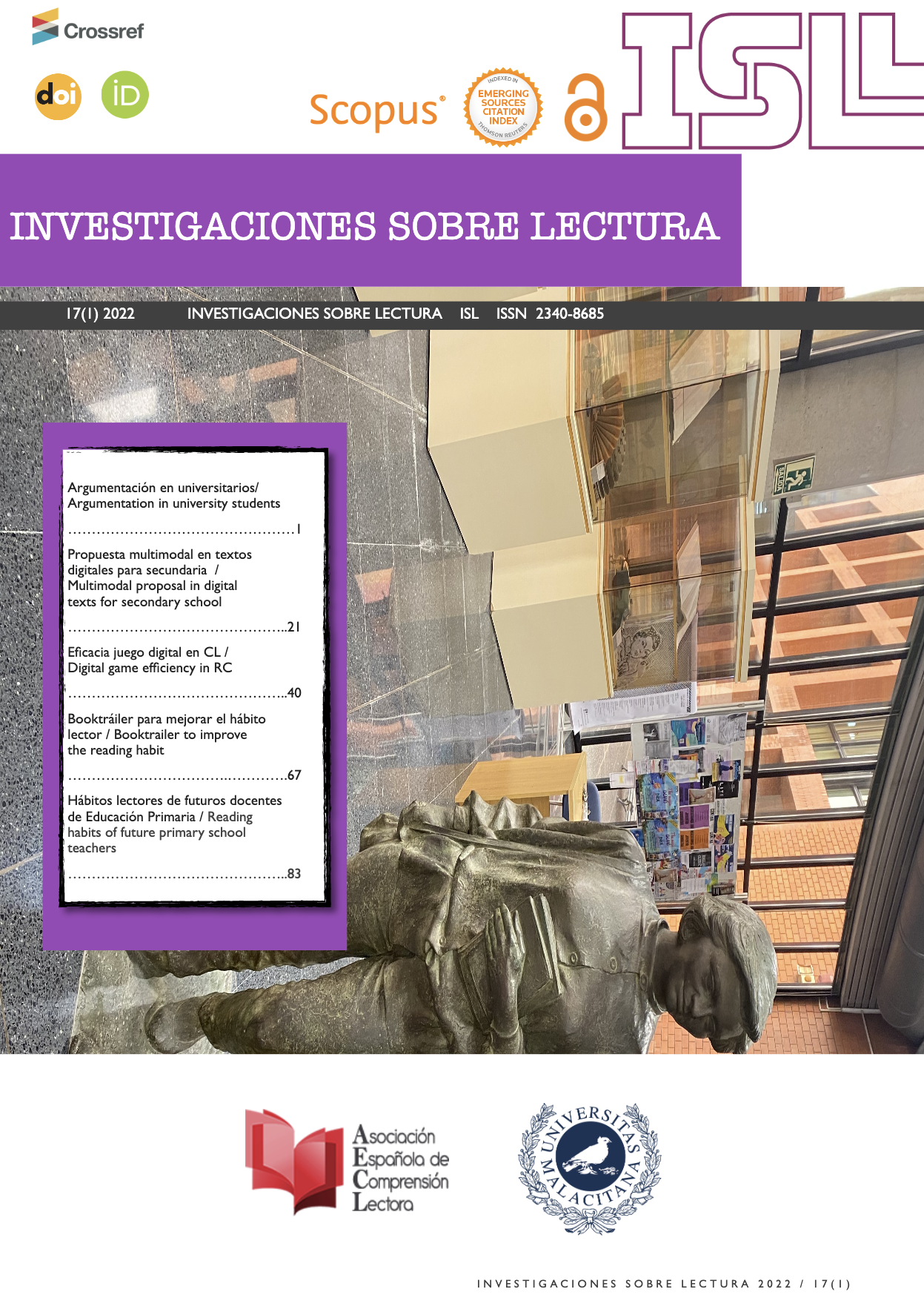
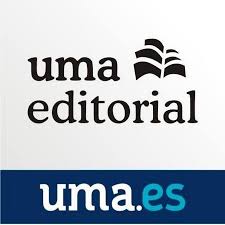
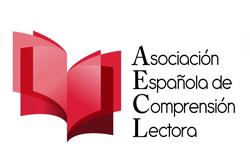
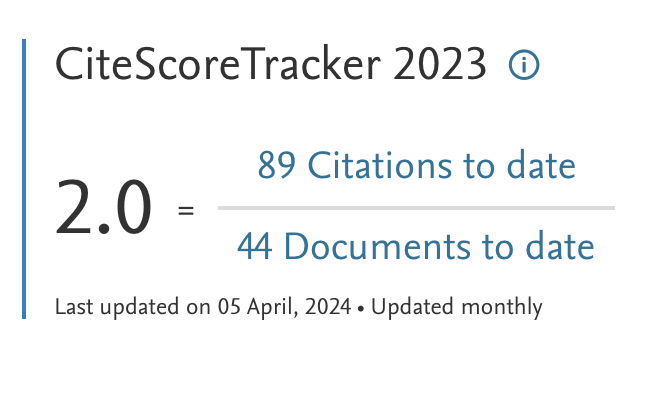
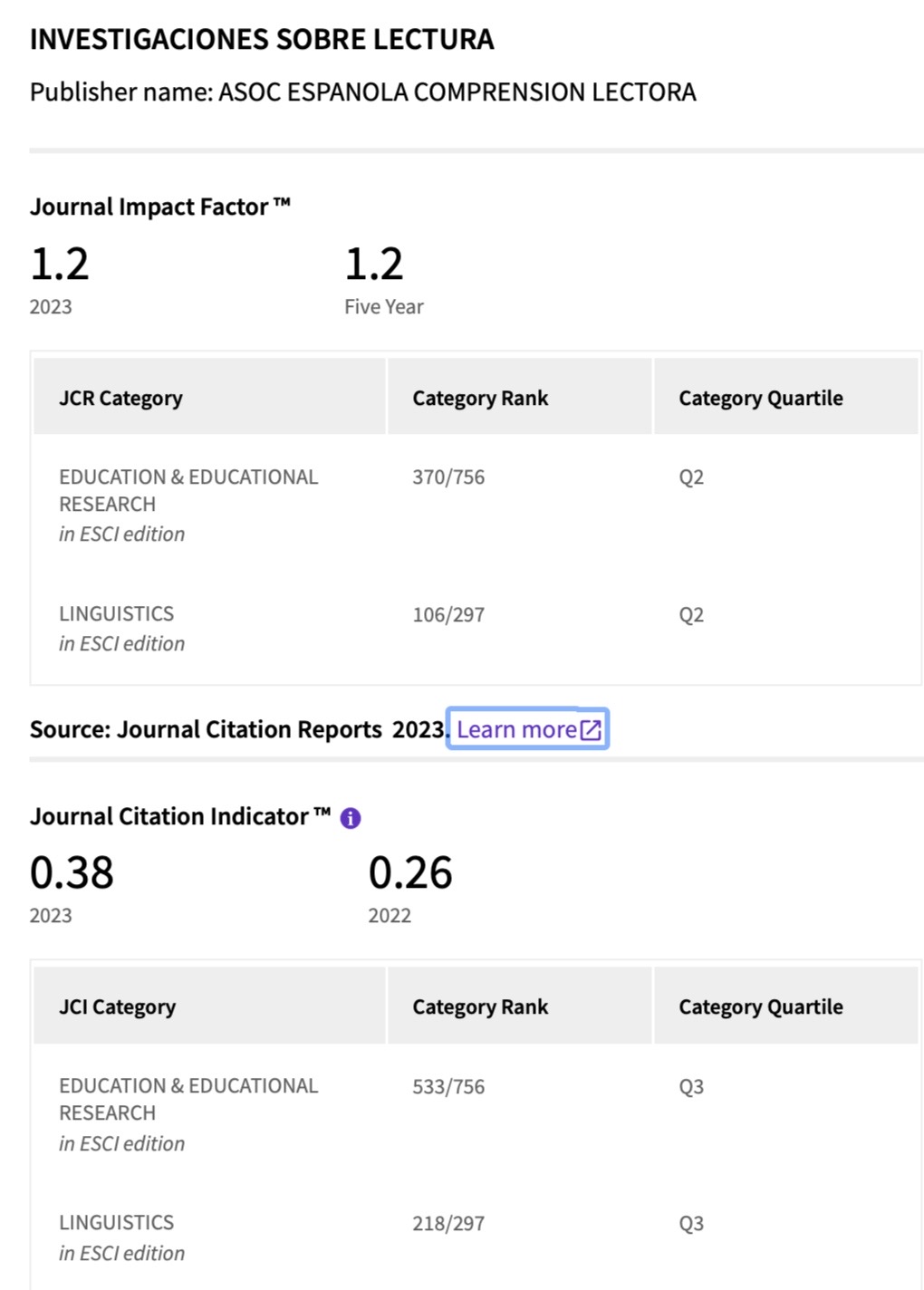
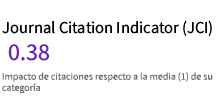
31.png)









